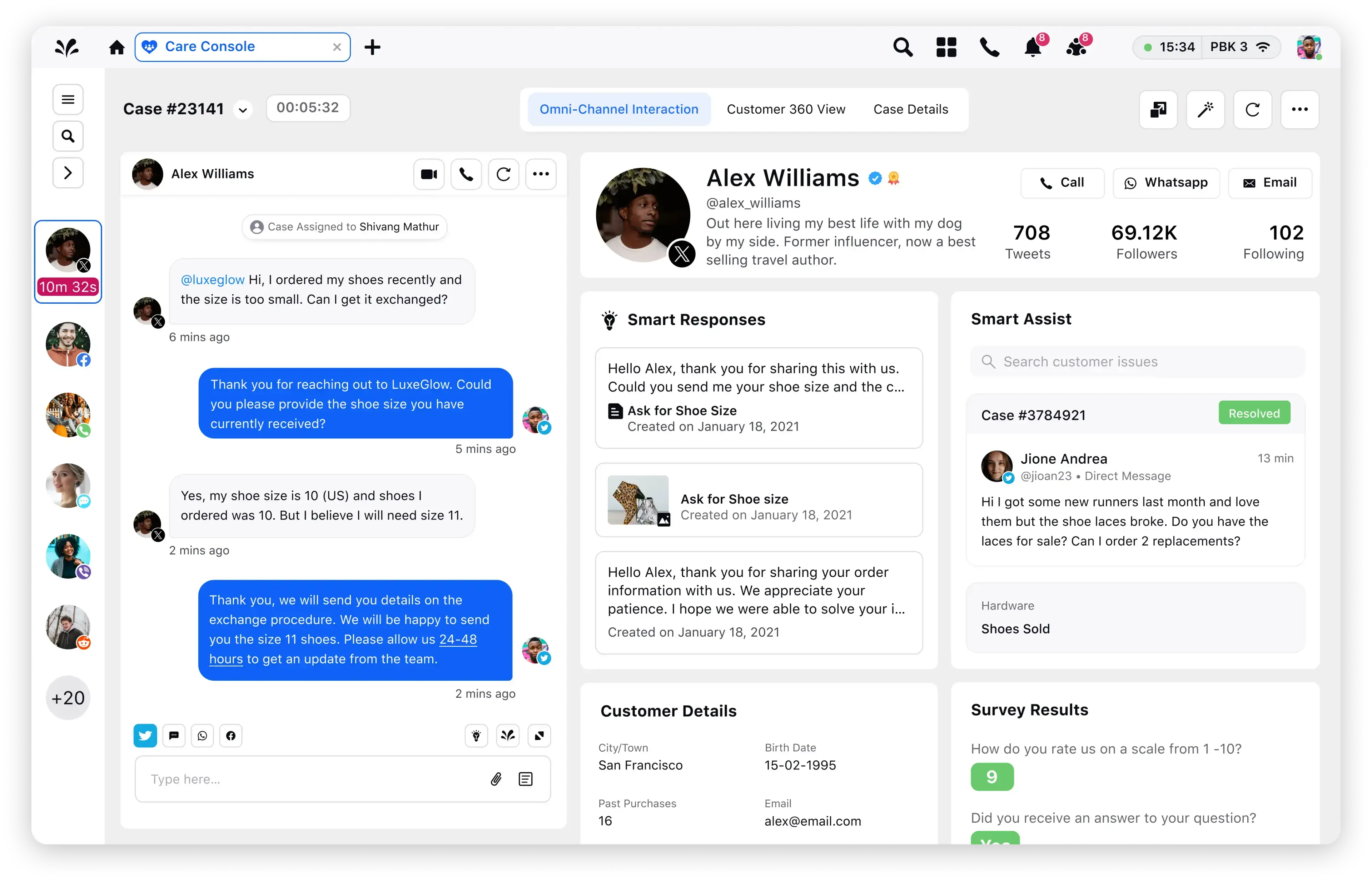The AI-first unified platform for front-office teams
Consolidate listening and insights, social media management, campaign lifecycle management and customer service in one unified platform.

Modern Skillsets: Hiring for a Customer Experience Center
Over the past decade, traditional customer service centers with 1-800 phone support have moved towards integrated Customer Experience Centers (CXCs), which offer help on the social media channels, digital messaging, and communities that customers increasingly prefer over traditional care platforms.
For a world-class company like Verizon, it has been a continuing evolution to build a social practice that not only responds quickly with personalized interactions, but also incorporates “the experience” as a key differentiator to how the customer connects with its brand.
That said, building a progressive experience beyond the established care operation requires evolving hiring practices to attract a new type of engagement professional. To that end, we talked to Ken Madrigal who serves as the Digital and Social Strategy Lead at Verizon on how he approaches the exciting challenge of finding the right people to staff these digital nerve centers.
What to Look for in Customer Experience Managers
CXC staff are tasked with providing helpful service on social media that keeps customers coming back (and avoiding gaffes that can quickly go viral). There are plenty of digital natives out there, but which ones are qualified to represent a global brand?
“Social engagement is still a new skill-set,” says Ken. “The way you engage customers is a talent and a skill to build over time. We have been focusing a different mix of agents, instead of a hiring primarily on tech support skillsets; we’ve been integrating hiring for an additional mix of social engagement specialists first, and then teaching them tech.”
Here are the qualities Ken and his team look for in this progressive approach to building a stronger community management approach within support.
Engagement Abilities
Applicants with community management and/or agency experience certainly carry some priority experience. That said, activities and lifestyle passions can facilitate a human connection over virtual channels.
Being interested (and well versed) in areas like tech, entertainment, gaming, and sports allow community managers to connect with customers on an individual level. The best conversations and strengthening relationships often happen when two people are able to nerd out on their favorite topics.
“If you can speak the customer’s language and do it in a natural way, you gain equity for the brand and build yourself up as trusted person in that space,” explains Ken.
Discipline
Customer care and community managers are faced with a daily barrage of potential crises. Having the discipline to respond to complaints calmly and helpfully is vital to avoiding confrontations online, and de-escalating situations that arise.
“We look for ways to keep things positive, relevant, and contextual,” says Ken. “Great community managers have a knack for speaking the language of social in a way that’s not adversarial.”
Social Sleuthing
In about 60 seconds, a good social agent should be able to view someone’s social profile, check out their most recent posts, and get a sense of who that person is behind the screen. This “social sleuthing” enables care agents to connect with customers on a human-to-human level.
“We want to avoid being out of context or over salesy – find personal ways to connect with customers, if they’re a sports aficionado, gamer or techie explore an approach with those interests versus something out of the blue,” Ken says. It ties back to engagement and discipline — knowing how to interact with others and being able to steer discussions in a natural way.
Creating a New Job Class
In addition to the challenge of finding qualified customer care associates, brands have an added hurdle of creating a new type of job class. Companies need to challenge themselves on new roles by asking the following questions:
1. What are the job requirements?
2. Are comparable salaries aligned to existing social roles?
3. How can we make the most of a limited candidate pool?
At first glance, the questions seem simple enough. But with social media still a nascent career path, there have been limited benchmarks to compare against.
Brands have to flesh out a full description of what the job would entail, how much these services are worth, and come up with new ways of vetting applicants who don’t always have direct experience with brand management. Market research helps a bit, while the rest is learned through experience.
“When you’re creating a new job description and a new job class, and you’re doing it from scratch, you have to explain the theoretical to HR,” says Ken. “This is what the job is, and this is what it’s worth in a major market. Part of the challenge is finding recruiters that get it.”
Assessing Customer Experience Candidates
Lastly, hiring Customer Experience Managers is more about reviewing a candidate’s social aptitude rather than an exhaustive work history.
“We see folks that have been doing it at the college level or as a side job,” Ken explains. “It all comes together when we give candidates situational tests to see how they solve problems. We’re looking at how they collaborate with others, what language they’re using, and how they learn.”
Ultimately, the best social media managers have an innate ability to connect with others, a desire to learn, and a strong knowledge of the social platforms being used each day. As the social landscape grows, these professionals will lead the next generation of marketers. Employers have a unique opportunity to onboard fresh talent now and develop that talent into tomorrow’s business leaders.
